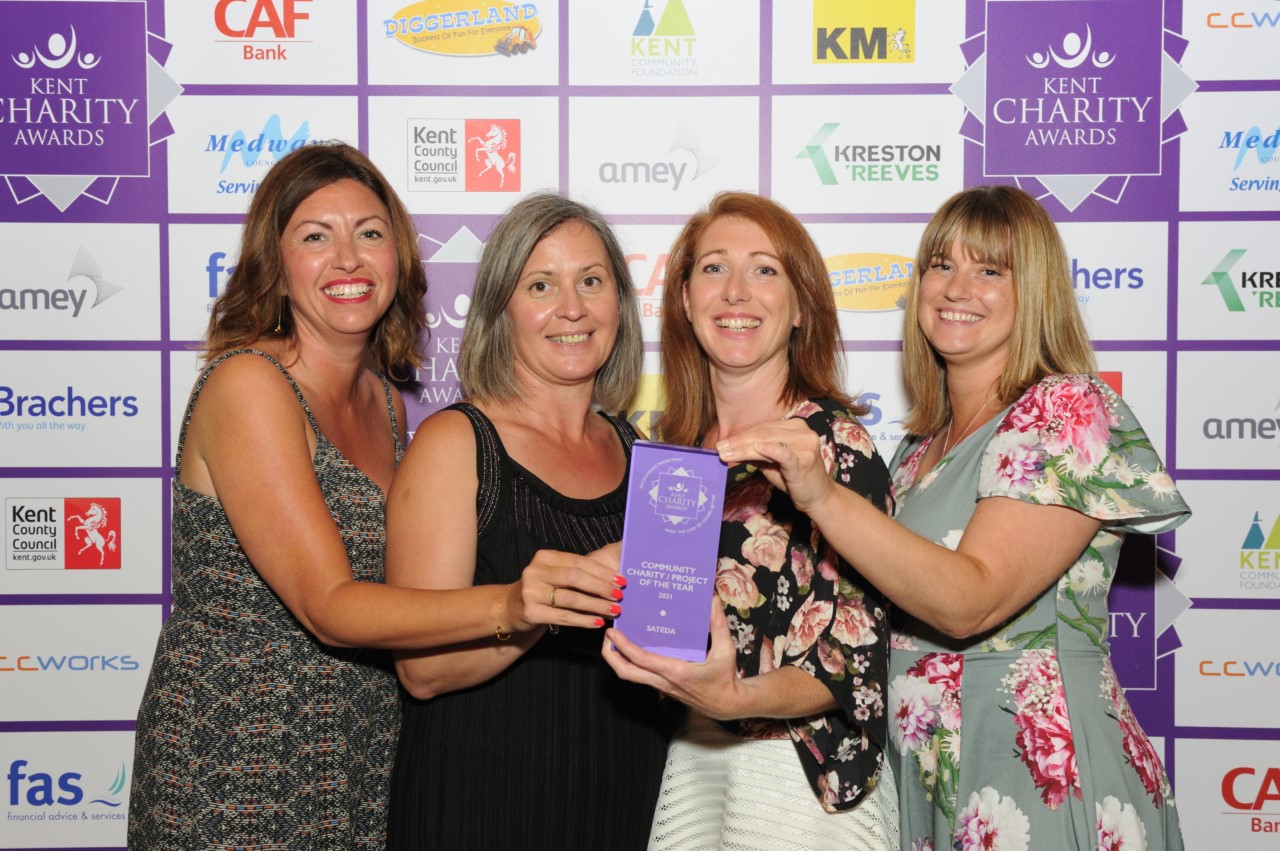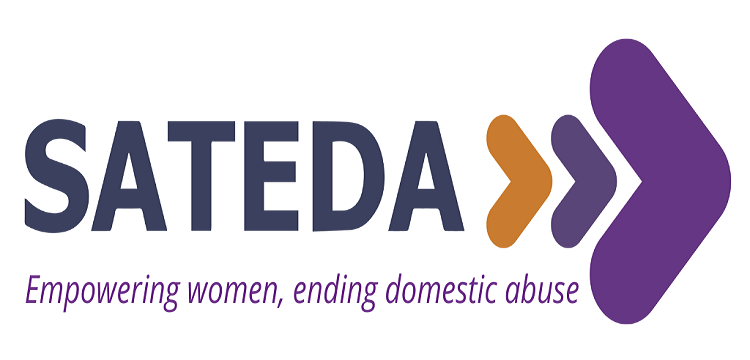SATEDA are a domestic abuse service based in Swale. The charity took part in the 2022 MBA Consultancy Week, where five MBA students were tasked with working on a weeklong problem-solving exercise for a range of businesses and organisations. Here, Interim Chief Executive Carey Philpott shares the work of the charity and their drive to push for systemic change in gender-based violence.
“I will never forget that day,” says Carey. “6 years ago, I buzzed into the office, new to the job, and there was one of our survivors sat with her back to me, her office chair facing the wall. She didn’t speak or turn around. I tried to include her in our conversations, but she didn’t acknowledge me.
“The domestic violence and abuse sector was new to me, and I wasn’t privy to just how suppressed from daily control and abuse someone can be in real life. She just sat there like that all day. She continued to come into the office, much in the same way, she didn’t do much, she just absorbed the normality around her. Years later, her confidence grew and she went on to become head facilitator of one of our programmes.”
SATEDA is a saviour for the women of Swale experiencing the complex crime of domestic abuse. The SATEDA ‘journey’ (‘It’s not one path’ points out Carey. ‘It’s many’) enables women not only to escape violence and coercive control but also to re-enter life after trauma. By the offer of a lifeline of confidence building and job skills training, SATEDA takes them far on from the point of escape.

“Our business is to help victims of domestic abuse and is also run by women who have lived experience of domestic abuse,” explains Carey. “Survivors are able to bring their unique experiences to allow women to finally break free and take back control.”
The charity encourages self-referral for services including one-to-one support, help with applications for things like protective court orders, counselling services and recovery services such as the Freedom Programme which gives survivors an insight into the tactics of an abuser to break the cycle of future abusive relationships. On top of this, those who use the service can take advantage of their employability programme which invites survivors to take on a role within the charity.
‘Systemic Change’
“We’re fighting and pushing for systemic change around gender-based violence and prevention methods,” says Carey. “We really need a top and tail approach to domestic abuse services, we work with women, support, empower and champion but only men can stop abusing women. If they can recognise their abuse, they have to be ready and enabled to do that.”
The charity hopes to transform attitudes towards the crime and to build a greater awareness of how it can evolve.
Carey says: “Unless someone has been in a position of having choice removed from them and has felt the intense fear that can come with that, they’ll never understand the traumatic decision making that is involved in leaving an abusive partner. They are a new person, moulded by the behaviours developed to keep them safe and alive. That’s why we are trying hard to ensure women come to us before they’ve reached that stage of abuse.”
The journey of SATEDA began back in 2009, when the charity was founded in partnership with the police, council and the housing association to address what seemed to be a disproportionate problem in the borough. Carey is very quick to point out that while the stats might suggest this to be the case, it doesn’t tell the whole story.
“Historically domestic abuse has been linked to high levels of deprivation but my view is here in Swale we’ve got communities more willing to speak about it. Domestic abuse is widely hidden. We know from the women we work with that there are additional barriers to leaving, particularly when you have more material things to leave.”

SATEDA are no strangers to the financial austerity facing many not-for-profits in the era of cost-of-living crisis. The charity came to Kent Business School MBA students as part of their consultancy week to pose the question of how better to deal with their stakeholders to help boost their much-needed financial support.
“There was some hard-hitting feedback. The students told us that we needed to stop trying to think of stakeholders when our management team needed a clearer infrastructure. They came up with some extra information around how we can use our networks to bring pro bono work to help with delivery.
“We highlighted our new website design, and they gave some suggestions around alternatives. They also gave us a lot of advice to cut down costs. It was interesting to get their fresh perspective, the way in which they understood the charity was impressive, we felt like they already worked here!” says Carey.
The team are hoping to join forces with the university again in the future, to gain valuable and free support for their important work which is under greater financial pressure every day.
Carey concludes: “We could never be able to afford a business consultant as we are not-for-profit, but through the MBA Consultancy Week, we gained five!”
Find out more about Kent Business School’s MBA Programme here.

